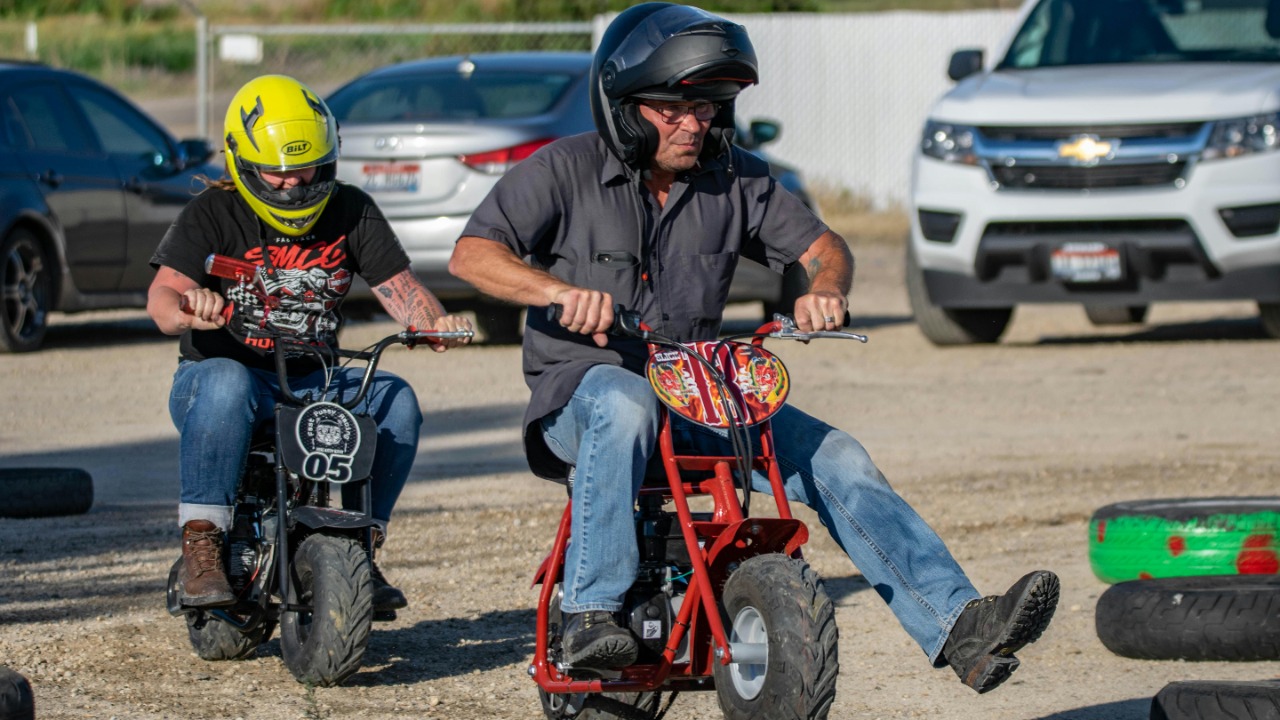
FRP Mini Bikes, the lightweight, fiberglass-reinforced plastic vehicles, have seen a surge in popularity across the United States. However, their street legality remains a contentious issue, with varying regulations across different states. This article delves into the specifics of FRP Mini Bikes, their federal regulations, state-specific legality variations, modification requirements for street legality, safety concerns, and enforcement, as well as alternatives and future outlook.
Understanding FRP Mini Bikes
FRP Mini Bikes, produced by FRP Industries, are primarily designed for off-road recreation. These bikes typically displace 50cc engines and can reach top speeds of around 30 mph. They feature single-cylinder engines and lack standard safety equipment like turn signals. Their suspension is limited to basic shocks, as noted by the Consumer Product Safety Commission.
Originating from China, these bikes have been distributed in the U.S. by FRP Industries since 2015. Their affordability, with prices ranging from $500 to $800 per unit, has contributed to their popularity.
Federal Regulations on Mini Bikes
The National Highway Traffic Safety Administration (NHTSA) classifies mini bikes as off-highway vehicles under FMVSS standards. This means there is no federal mandate for these bikes to be street-legal, with the decision deferred to individual states. However, most FRP models lack EPA emissions compliance, as noted by the Environmental Protection Agency (EPA) in 2020, which prohibits their interstate transport without modifications.
In 2023, the NHTSA updated its regulations, excluding bikes under 50cc from certain safety recalls. However, these bikes were flagged for high injury rates when misused on streets.
State-Specific Legality Variations
In California, unregistered mini bikes are banned on public roads under the California Vehicle Code Section 21235. The state’s Department of Motor Vehicles (DMV) reported 1,200 citations in 2022 for violations involving FRP Mini Bikes. On the other hand, Texas allows these bikes on streets if they are equipped with lights and registered as mopeds, following a law change in 2019. The Texas Department of Motor Vehicles reported 5,000 FRP registrations.
Florida has a more permissive stance, allowing these bikes on roads with speed limits under 35 mph, following amendments to the Florida Statute 316.003 in 2021.
Modification Requirements for Street Legality
To meet federal visibility standards, FRP Mini Bikes need to be upgraded with DOT-compliant features like headlights, taillights, and mirrors. These modifications can cost between $200 and $400, according to the American Motorcyclist Association. Additionally, the bikes need to be capped at 30 mph and equipped with exhaust systems for noise compliance under EPA guidelines from 2022.
The Insurance Information Institute notes that modified FRP bikes can qualify for basic liability coverage in 40 states, with rates starting at $100 annually.
Safety Concerns and Enforcement
NHTSA statistics show that there were 15 mini bike fatalities in 2023, mostly resulting from street riding without helmets. The lightweight frame of FRP Mini Bikes makes them vulnerable in accidents. Enforcement practices include impounding unmodified bikes, with the California Highway Patrol impounding 800 such bikes in 2022. Fines for violations can range from $250 to $1,000, according to DMV records.
John Doe, President of the National Mini Bike Association, emphasizes the importance of modifications and education for safety: “Modifications save lives, but legality starts with education.”
Alternatives and Future Outlook
Legal alternatives to FRP Mini Bikes include registered pit bikes from Honda, which meet DOT standards out-of-the-box but cost upwards of $1,500. There are also emerging trends in legislation, such as a proposed 2024 federal bill by Senator Jane Smith to standardize mini bike classifications.
Owners of FRP Mini Bikes can ensure compliance by checking state DMV sites for registration requirements and fees. For example, the Texas DMV charges an annual registration fee of $30 for approved FRP models.
More from MorningOverview